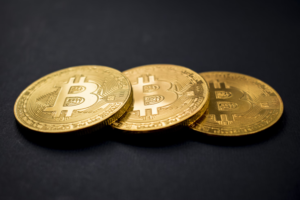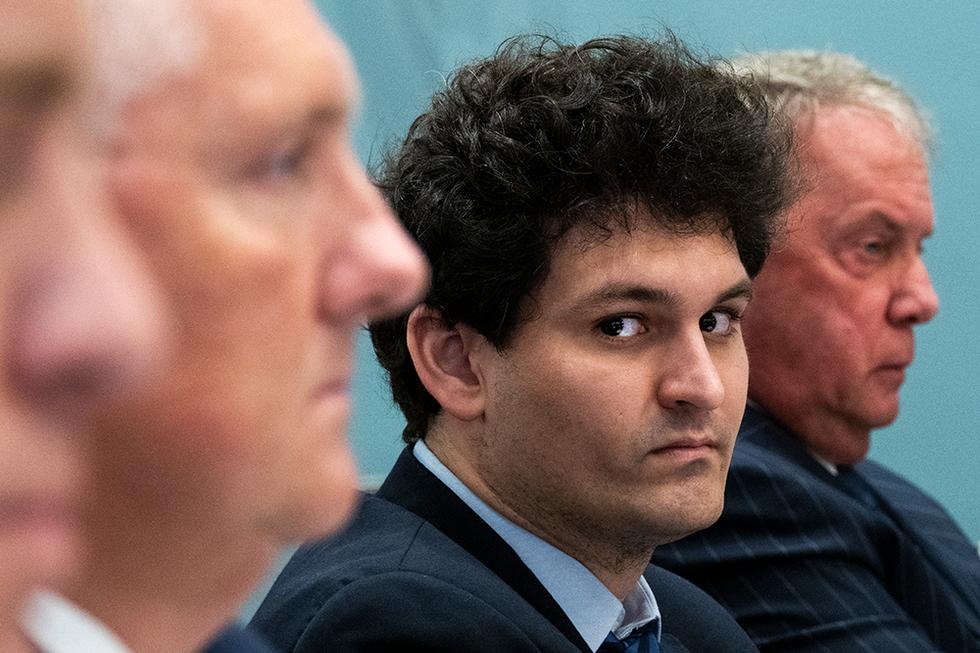The price of Bitcoin (BTC) is poised for a potential correction following the approval of spot Bitcoin exchange-traded funds (ETFs), according to experts.
Bitcoin has witnessed significant gains over the past 11 months, driven by various factors such as banking uncertainty, the filing of a spot Bitcoin ETF by BlackRock, and optimism surrounding ETF approvals.
On December 3rd, Bitcoin reached a 19-month high by surpassing the $40,000 mark.
James Edwards, a cryptocurrency analyst at Finder, suggests that the approval of a spot Bitcoin ETF could trigger a “sell-the-news” event, which is a situation where an asset rises in anticipation of positive news but declines once the news is confirmed.
Edwards believes that widespread institutional buying may not happen immediately upon ETF approval and could take months or even years to materialize.
However, not everyone is convinced that a significant correction is imminent.
Ryan McMillin, the chief investment officer at Merkle Tree, acknowledges that Bitcoin has gone without a correction for over 100 days, indicating an increased risk of correction.
Still, he believes that the high anticipation surrounding spot Bitcoin ETFs will likely lead to a quick recovery in the event of a sell-off.
CK Zheng, co-founder of ZX Squared Capital, predicts that any price pullback in Bitcoin will be shallow due to strong fundamentals.
READ MORE: British Legislators Urge Cautious Approach to Retail Digital Pound Implementation
Factors such as the upcoming Bitcoin halving, extensive money printing by global central banks, and ongoing geopolitical uncertainty contribute to the cryptocurrency’s resilience.
Despite the logical expectations of a correction, cryptocurrency remains a “wild card” in the financial markets. It often defies conventional wisdom, and market movements may not align with logical predictions.
Looking ahead to December, analysts do not anticipate a loss of momentum for Bitcoin. Institutional investors have reportedly been speculating on ETF approval, with increased inflows into existing Bitcoin futures ETFs in recent days.
This suggests that prices may remain relatively stable as investors await confirmation, either from technical charts or an official ETF approval.
Crypto lawyer Joe Carlasare sees “little chance” of a significant Bitcoin correction before ETF approval, as the market is only weeks away from the likely approval date.
Henrik Anderrson, Chief Investment Officer at Apollo Capital, believes that the approval of multiple spot Bitcoin ETFs could redirect mainstream attention towards the cryptocurrency market.
The industry is eagerly awaiting a potential approval window between January 5th and 10th, 2024, which could have a substantial impact on Bitcoin’s future performance.
After Binance, a prominent cryptocurrency exchange, reached a substantial settlement of $4.3 billion with United States regulators last week, the cryptocurrency landscape has experienced notable shifts.
A recent report from on-chain data analytics firm Kaiko Research highlights these changes.
The settlement between Binance and the United States Department of Justice (DoJ) came as a resolution to allegations related to anti-money laundering practices.
In the wake of this legal development, various crypto exchanges have witnessed alterations in their market share dynamics.
One of the key findings in Kaiko Research’s report is the surge in Coinbase’s market share.
The report indicates that Coinbase experienced an increase in its trading volume, particularly during the European trading day and outside the regular U.S. trading hours. This suggests that Coinbase’s market share grew significantly during these times.
Bybit, another cryptocurrency exchange, emerged as a standout winner in the report, showing substantial market share gains throughout the entire day.
Bybit’s market share increased by more than 20% in 16 out of 24 hours, highlighting its resilience and competitiveness in the cryptocurrency market.
Despite the changes in market share dynamics, Binance has managed to maintain its liquidity across various cryptocurrencies, including Bitcoin (BTC) and altcoins.
READ MORE: Paolo Ardoino Takes the Helm as Tether’s New CEO, Unveils Ambitious Expansion Plans
This means that Binance remains a leader in terms of providing ample trading liquidity despite the legal challenges it has faced.
Interestingly, some industry leaders view Binance’s settlement with the DoJ as a positive development for the broader crypto community.
Galaxy Digital’s Mike Novogratz expressed optimism, stating that the legal resolution has reduced concerns associated with dealing with Binance, thereby reducing risk within the crypto industry.
In more recent news, Coinbase’s shares reached an 18-month high following Binance’s legal troubles.
On November 27th, Coinbase’s closing price reached $119.77, the highest level since May 2022 when it closed at $114.25, as reported by TradingView data.
This surge in Coinbase’s stock price suggests increased investor confidence in the exchange and its position in the cryptocurrency market.
In conclusion, Binance’s settlement with U.S. regulators has triggered changes in the cryptocurrency market’s landscape, with Coinbase and Bybit notably gaining market share.
Despite the legal challenges, Binance continues to maintain its liquidity leadership, and industry experts see the resolution as a positive step for the crypto community.
Additionally, Coinbase’s stock price reaching an 18-month high underscores growing investor interest in the exchange.
British lawmakers are urging a cautious approach when it comes to implementing a retail digital pound, emphasizing the importance of finding a balance between technological progress and potential drawbacks.
Members of the Treasury Select Committee have raised concerns about the possible launch of a retail digital pound, emphasizing the need for careful consideration before taking any steps.
While acknowledging the potential benefits in terms of innovation, the committee has called on the Bank of England (BoE) and Treasury to conduct a thorough assessment of the necessity of such a move, taking into account both costs and risks.
In the interim, the committee’s report suggests imposing lower initial limits on the value of retail digital pounds to mitigate the risk of potential bank runs during periods of market instability.
This precautionary measure aims to discourage large transfers of deposits into digital wallets, which could increase the risk of bank failures and raise borrowing costs.
The report also addresses privacy concerns, recommending that any legislation introducing a digital pound should strictly restrict the government or the BoE from using data excessively.
READ MORE: Former FTX CEO Sam Bankman-Fried Opts Against Post-Trial Motions After Fraud Conviction
The committee emphasizes the importance of protecting user privacy and ensuring that the digitization of currency does not lead to unwarranted surveillance.
In the event of legislation for the introduction of a digital pound, the report proposes explicit limitations on the government and the Bank of England in utilizing data obtained through the digital pound for purposes beyond those already authorized for law enforcement.
Committee chair Harriett Baldwin stressed the need for compelling evidence before considering the introduction of a retail digital pound.
She emphasized the requirement for clear proof that its implementation would benefit the UK economy without increasing risks or incurring unmanageable costs.
Baldwin asserted that the decision to integrate it into the financial system should be based on a comprehensive evaluation of these factors.
While endorsing the Bank of England’s ongoing design efforts, UK lawmakers have called for transparency regarding project costs.
Baldwin highlighted the importance of a concise cost-benefit analysis to ensure that introducing a retail digital pound aligns with broader goals of economic stability and financial inclusion.
Meanwhile, in a separate development, investment managers in the United Kingdom are receiving regulatory support to embrace blockchain technology for tokenizing funds, moving away from traditional record-keeping systems, thus embracing innovation in the financial sector.
United States District Judge Robert Shelby has issued a stern warning to lawyers from the Securities and Exchange Commission (SEC), hinting at potential sanctions in response to alleged deceptive statements made in a legal action against Digital Licensing Inc., also known as DEBT Box, a prominent cryptocurrency company.
The SEC had filed a lawsuit against DEBT Box in the federal court of Utah, alleging that the company had deceived investors by approximately $50 million through the sale of unregistered securities known as “node licenses.”
However, Judge Shelby’s ruling revealed significant inconsistencies in the SEC’s case.
Initially, the SEC, led by attorney Michael Welsh, had successfully convinced the court to freeze DEBT Box’s assets, claiming that the company was relocating to Dubai to evade U.S. regulatory oversight.
Subsequently, it was discovered that these assertions were inaccurate, as there were no bank account closures, and an alleged overseas transfer of $720,000 turned out to be domestic.
Judge Shelby expressed concerns about the conduct of the SEC lawyers, suggesting that misrepresenting facts and the failure of other team members to rectify these inaccuracies may have violated federal court Rule 11(b), which mandates evidence-backed factual claims.
In response, Shelby issued a “show cause order,” requiring the SEC to provide reasons why they should not face penalties for their actions.
The complexity of the case is emphasized by a TRM Labs report that supported the SEC’s primary claim that DEBT Box had deceived investors regarding mining tokens.
However, the defense counsel has yet to provide a statement on the issue, and the SEC has acknowledged the order, with plans to respond within the specified two-week timeframe set by Judge Shelby.
This development marks a crucial moment in the legal process, shedding light on the intricacies of cryptocurrency regulation and emphasizing the importance of legal accountability in high-stakes financial litigation.
Ripple lawyer John E. Deaton expressed little surprise at the SEC’s alleged dishonesty, suggesting that the agency’s lawyers may have personal biases in crypto cases.
Deaton called for a subpoena against the financial regulator.
His colleague, Ripple chief technology officer Stuart Alderoty, has also outlined troubling patterns observed in the SEC’s actions, further raising questions about the agency’s conduct in cryptocurrency-related matters.
Swan Bitcoin’s CEO, Cory Klippsten, has proposed that spot Bitcoin exchange-traded funds (ETFs) could significantly alter the landscape of cryptocurrency marketing.
In a recent interview with Bloomberg on December 1, Klippsten emphasized that Bitcoin ETFs provide an alternative means of entering the crypto market, one that can bypass the noisy and often manipulative marketing tactics that have dominated the space since 2017.
Klippsten noted that over the past six years, the crypto industry has been inundated with aggressive marketing schemes fueled by substantial venture capital investments, which aimed to promote and sell various crypto tokens.
These strategies often lured newcomers into the space with flashy promises and high-risk propositions.
In contrast, Klippsten explained that Bitcoin ETFs function as a form of IOU for Bitcoin itself, differing from futures-based alternatives.
They represent a paper version of the cryptocurrency, but the issuing firm is required to secure the investments by purchasing actual Bitcoin.
READ MORE: Bitcoin Surges to $39,000 Amidst Federal Reserve’s Policy Easing Hints
This, he believes, makes ETFs a more secure and reliable entry point for newcomers looking to invest in Bitcoin.
Furthermore, Klippsten shares the optimism of many crypto analysts who anticipate a “clear runway” for Bitcoin ETF approval in January.
He highlighted a potential approval window around January 8th, 9th, or 10th, based on signals from the SEC and industry insiders.
Interestingly, this perspective coincides with a recent announcement by Standard Chartered, a major banking institution, which predicted that Bitcoin ETFs could drive the price of Bitcoin up by a remarkable 165% by the end of 2024.
Standard Chartered’s Geoff Kenrick, Head of EM FX Research, West, and Crypto Research, pointed out that the shift in forecasts suggests the possibility of significant price increases before April 2024, primarily due to the anticipated introduction of US spot ETFs ahead of schedule.
In summary, Cory Klippsten’s insights suggest that Bitcoin ETFs may bring a more stable and transparent investment avenue for individuals seeking exposure to the crypto market while avoiding the noisy marketing tactics that have dominated the industry for years.
The convergence of such views, along with the anticipation of ETF approval and the positive price outlook, indicates an evolving and maturing cryptocurrency landscape.
On December 1st, Paolo Ardoino assumed the role of CEO at Tether, transitioning from his previous position as Chief Technology Officer, a role he had held since 2017.
This leadership change had been meticulously planned and aligns with the company’s strategic focus on diversification and expansion.
Tether, a prominent player in the cryptocurrency space, is currently experiencing a prosperous period. Ardoino disclosed that the company is poised to generate profits of approximately $4.5 billion from its core business this year.
In an interview with Cointelegraph, Ardoino shed light on the upcoming transformations within Tether’s product portfolio and its overarching strategy.
Ardoino emphasized that Tether’s scope extends far beyond its flagship product, USDT. The company is set to evolve into an infrastructure provider in the crypto ecosystem.
While Ardoino expressed enthusiasm for the concept of Web3, he was critical of its current implementation, referring to it as a “bubble.”
He stressed the importance of establishing a real-world ecosystem rather than merely discussing real-world assets.
A notable development in Tether’s portfolio is its involvement with the communications app Keet, where Ardoino serves as Chief Strategy Officer.
Keet, while decentralized, differs from traditional blockchains and draws inspiration from BitTorrent.
READ MORE: ARK Invest Bolsters Portfolio with $1.5 Million SoFi Shares Purchase Amid Crypto Exit
It facilitates real-time communications by enabling users to connect via their IP addresses, offering a cost-free service.
Although Keet generates no immediate revenue, Ardoino anticipates that it will play a significant role in driving adoption of Bitcoin and USDT worldwide.
Keet’s value proposition is rooted in both technology and philosophy, as it reduces the need for data centers, hardware, cables, and energy globally.
Moreover, it is impervious to censorship, unlike centralized alternatives like WhatsApp or Skype.
Ardoino emphasized Tether’s commitment to Bitcoin, emphasizing its resilience against inflation and political turmoil.
Tether is also delving into Bitcoin mining, aligning its principles with its business activities.
Ardoino argued that investing in renewable energy for mining is logical, as fossil fuel-based electricity generation infrastructure is both expensive and unpredictable in terms of costs.
Tether’s expansion plans in the renewable energy sector include constructing hydropower facilities in Uruguay and geothermal facilities in El Salvador.
While geothermal projects have a longer construction timeline, they offer a service life exceeding half a century, twice that of wind and solar generators.
These endeavors reflect Tether’s commitment to sustainability and its dedication to the crypto industry’s continued growth.
Former FTX CEO Sam “SBF” Bankman-Fried has opted not to pursue any post-trial motions following his conviction on federal fraud charges on November 2.
His legal team communicated this decision in a letter dated December 1 to Judge Lewis Kaplan in the United States District Court for the Southern District of New York.
While they have chosen not to file post-trial motions, they have reserved the right to pursue claims on appeal. This development comes as the latest in the ongoing legal saga surrounding SBF, who is scheduled for sentencing on March 28.
The situation regarding Bankman-Fried’s second trial in March remains uncertain.
Initially, his indictment was split into two parts, with seven counts in October and five charges scheduled for March.
READ MORE: Circle Firmly Denies Illicit Financing Claims and Ties to Justin Sun in Open Letter
However, following the guilty verdict in November, SBF now faces the possibility of a lengthy prison sentence that could span decades.
Following the jury’s verdict, Bankman-Fried was returned to the Brooklyn Metropolitan Detention Center, where he is expected to remain until his sentencing date.
On November 30, crypto blogger Tiffany Fong conducted an interview with a former mob enforcer named Gene Borrello, who disclosed some of SBF’s experiences in jail.
Borrello claimed that another inmate had attempted to extort the former FTX CEO during his time in detention.
Bankman-Fried’s legal troubles have made him one of the first high-profile crypto executives to face criminal charges in the United States.
In a similar vein, former Celsius CEO Alex Mashinsky was arrested in July, and as of the current date, he remains free on bail pending his criminal trial scheduled for September 2024.
Changpeng Zhao, who stepped down as CEO of Binance and pleaded guilty to a felony charge as part of a settlement with U.S. authorities, is slated for sentencing in February.
The crypto industry continues to grapple with legal challenges, with these cases drawing significant attention as they unfold.
Lawyers representing the United States Securities and Exchange Commission (SEC) and Terraform Labs, along with co-founder Do Kwon, engaged in a heated courtroom battle centered around information provided by an anonymous whistleblower in a securities lawsuit.
This legal showdown, which unfolded in the U.S. District Court for the Southern District of New York, is of significant consequence to the crypto community.
On November 30, a transcript of the court proceedings, disclosed by Inner City Press, revealed that the SEC continued to assert its allegations of fraud against Terra and Kwon, specifically concerning the LUNA token.
The SEC supported its claims with sealed evidence furnished by the undisclosed whistleblower.
In response, Kwon’s and Terra’s legal team vehemently challenged the SEC’s position, accusing them of inconsistency regarding the depegging of TerraUSD (UST) from the U.S. dollar.
“The SEC has misrepresented Do Kwon’s statements,” asserted Kwon’s and Terra’s lawyer. “The whistleblower, whose identity we cannot reveal, has withheld some of their recordings.”
Judge Jed Rakoff, presiding over the case, weighed in during the proceedings, suggesting that any filings made under seal might lose their confidentiality status should the case proceed to trial.
READ MORE: Coinbase Reports Surge in Law Enforcement Requests, with the U.S. Leading the Pack
This development followed the judge’s approval, on November 28, of confidential treatment for certain materials submitted by Jump Crypto, a firm implicated in the events leading up to the UST depegging controversy.
Do Kwon, who had previously been arrested in Montenegro in March for allegedly using counterfeit travel documents, now faces the possibility of extradition to either the United States or South Korea, subject to court approval.
In addition to the SEC’s civil lawsuit, Kwon also faces eight criminal charges related to fraud at Terraform Labs.
The trajectory of the case hinges on Judge Rakoff’s decision regarding motions for summary judgment. Should he deny these motions, the SEC’s case against Terra and Kwon is slated to commence in January 2024.
Furthermore, former FTX CEO Sam Bankman-Fried awaits sentencing in March 2024, while the trial of former Celsius CEO Alex Mashinsky is anticipated to take place in September 2024, both in the same judicial district.
These legal battles underscore the growing regulatory scrutiny and legal challenges facing the cryptocurrency industry.
Australians are increasingly turning to cryptocurrency as a means to secure a prosperous retirement, as self-managed retirement funds show a remarkable 400% surge in cryptocurrency allocation over just four years, outpacing the growth rate of traditional stocks and bonds.
Statistics released by the Australian Tax Office (ATO) on November 26 reveal that, as of the quarter ending in September, the nearly 612,000 self-managed super funds (SMSFs) collectively hold approximately $658.6 million (992 million Australian dollars) worth of cryptocurrencies.
This figure marks a staggering 400% increase from the same quarter in 2019 when crypto holdings stood at just under $131.5 million (198 million AU).
In Australia, self-managed super funds, also referred to as private superannuation funds, empower individuals to manage and invest their retirement funds autonomously.
The ATO oversees this retirement scheme, ensuring compliance with superannuation laws.
Danny Talwar, Head of Tax at crypto tax provider Koinly, described crypto as the “largest growing asset class in SMSFs.”
In contrast, listed shares, which constitute the largest allocation category in SMSFs, grew by 28% during the same period, while allocations to debt securities like bonds declined by 5.8% over the past four years.
Despite this remarkable growth, total SMSF allocations to cryptocurrency saw a slight 0.8% dip from the quarter ending in June 2023, along with a 2.4% drop compared to the previous year.
READ MORE: Swiss Asset Manager Pando Asset Joins U.S. Bitcoin ETF Race as BlackRock Refines Model with SEC
It’s worth noting that the current amount of crypto held within self-managed funds is still 38% lower than the all-time high of nearly $1.06 billion (1.6 billion AU) recorded in the quarter ending June 2021 during the previous crypto bull market.
Talwar highlighted that cryptocurrency accounts for only 0.1% of the total net assets held in Australian SMSFs at the end of the last quarter.
He also pointed out that smaller-sized SMSFs tend to have a larger allocation to cryptocurrencies in their portfolios.
The trend of holding crypto within super funds is on the rise, with local crypto exchanges offering crypto superannuation products.
However, Talwar cautioned that certain rules and regulations must be followed, emphasizing that the SMSF strategy should be geared toward providing a retirement benefit.
Compliance, audits, and clear separation of SMSF holdings from personal holdings are crucial to avoid complications.
Unfortunately, specific details about the cryptocurrencies held by SMSFs and their gains or losses remain unknown, as the ATO does not provide information on portfolio holdings or performance.
In a recent development in Hong Kong’s cryptocurrency landscape, scammers have managed to lure 145 unsuspecting victims into investing a staggering $18.9 million into the unlicensed crypto exchange known as Hounax.
These fraudulent individuals posed as investment experts, promising investors an annual return of up to 40%, all while guaranteeing “no risk” in their enticing advertisements.
However, once users deposited their hard-earned funds into Hounax, they found themselves unable to make withdrawals.
The Securities & Futures Exchange (SFC) of Hong Kong raised concerns about Hounax’s suspicious activities and listed it on its billboard of questionable crypto exchanges on November 1.
However, due to Hounax’s unlicensed status at the time of the incident, the regulator’s enforcement actions did not apply.
This incident marks the second cryptocurrency scandal to hit Hong Kong in recent months.
In September, another unlicensed exchange called JPEX collapsed amidst allegations of running a Ponzi scheme.
READ MORE: Demand for Bitcoin Futures Surges
This led to 66 arrests and an estimated loss of $205 million for investors.
Despite these troubling events, Hong Kong regulators are displaying a resolute commitment to establishing the city as a prominent hub for Web3 technologies.
SFC CEO Julia Leung stated that they have no intentions of modifying the grace period and other measures aimed at regulating the cryptocurrency sector, even if the grace period ends in June 2024 under current regulations.
In a positive turn of events for the crypto industry in Hong Kong, financial institutions Interactive Brokers and Victory Securities recently announced that they have obtained crypto licenses.
Interactive Brokers has partnered with the licensed crypto exchange OSL to offer immediate Bitcoin and Ethereum trading services to its clients in Hong Kong.
Furthermore, on November 29, Darryl Chan, deputy chief executive of the Hong Kong Monetary Authority, unveiled an ambitious multinational initiative known as “mBridge.”
This protocol aims to create a cross-chain bridge for China’s digital yuan central bank digital currency, with the goal of reducing transaction fees and improving cross-border transaction speeds.
The first pilot tests for mBridge will commence in mainland China and Hong Kong, marking a significant step towards enhancing the digital yuan’s utility on a global scale.













